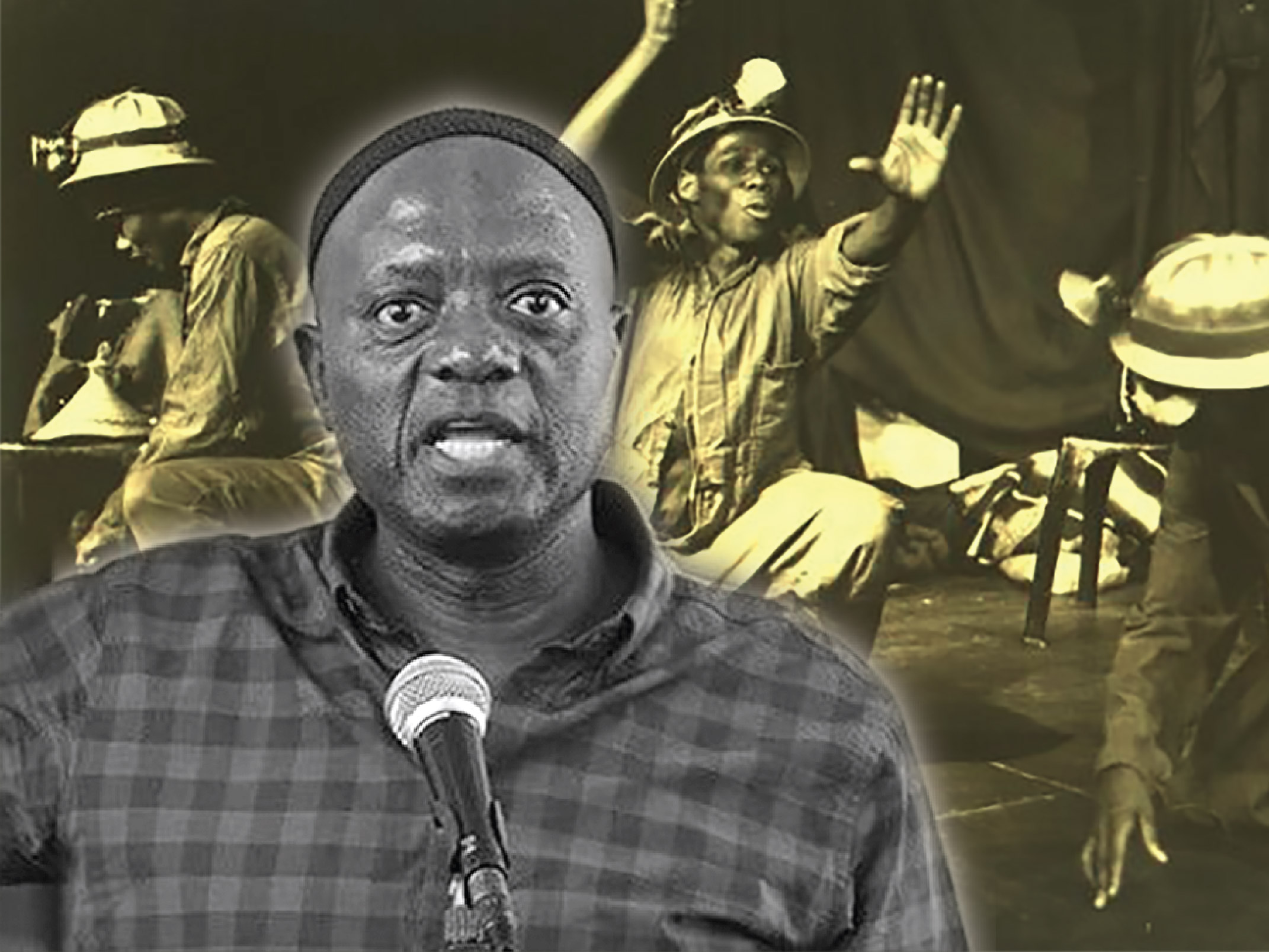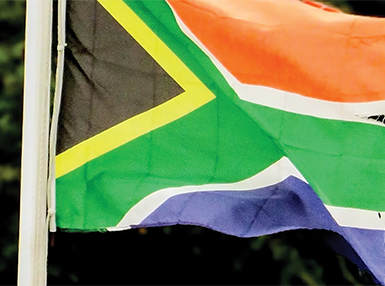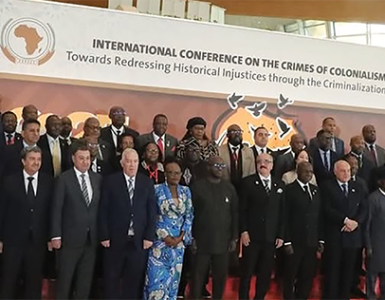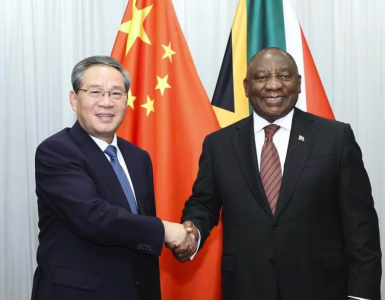By Dr. Lebogang Lance
Although his global outlook transcended ideological confines, renowned poet and playwright, Maishe Maponya, always advanced a Black Consciousness perspective.
The towering co-founder of the National Writers Association of South Africa (NWASA), Maponya, was born on 4 September 1951 in Alexandra, raised and educated in Diepkloof, and passed away on 29 July 2021. Indeed, the news of his passing on have cast us into a trance for a few days and we’re still refusing to accept that indeed the inevitable has dawned upon him.
A few years ago, two seasoned cultural advocates, Maponya and Nana Kefuoe Walter Chakela, NWASA’s Founding President, spent endless days deconstructing the state of the arts and culture landscape in the post-apartheid South Africa – the subject they were most passionate about as it embodied the essence of their lives as activists who for them culture was a site of struggle against apartheid.
This duo were both renowned playwrights, poets, theatre directors. While Maponya was a drama lecturer at Witwatersrand University, Chakela – also a former broadcaster – used his craft in adapting African literature matric setworks such as Bessie Head’s phenomenal novel, Maru, into a stage play to make it accessible to high school students.
Thus, both also shared an insatiable love for education of a black child. Inside the country in the 1970s, as the winds of Steve Biko’s Black Consciousness philosophy swept across the country to awaken our people from a political lull imposed in the 1960s by the banning of key anti-apartheid organisations and the concomitant imprisonment of struggle leaders such as Nelson Mandela while others such as Oliver Tambo were forced into exile, cultural formations such as Maponya’s Bahumutsi Drama Group and Lefifi Tladi’s Dashiki, Patrick Sefolosha and Kenny Mathaba’s Malopoets used their productions as tools to mobilise the masses of our people into joining the struggle.
Abroad, the African National Congress established groups such as the Amandla Cultural Ensemble to mobilise through song, poetry and dance while also conscientising the international community about the demon of apartheid tyranny – hence the world even declared apartheid a heresy and imposed both cultural and investment boycotts to isolate the apartheid regime.
Conscious of this background, Maponya and Chakela were aggrieved by our democratic dispensation’s reluctance or inadequate adoption of culture by the post-1994 democratic dispensation as a critical jigsaw piece in the puzzle of reconstruction and development of our country, and furthermore, using cultural diplomacy as an arsenal in its international engagements. They both couldn’t accept the demise of the erstwhile Congress of South African
Writers (COSAW) and African Writers Association (AWA) after the dawn of democracy and they believed this contributed to the declining development of the cultural industries in the country.
Something had to be done, they resolved. It is worth noting that at the time, Maponya’s health was declining and yet his sense of camaraderie inspired him to visit Chakela in Midrand where he was confined to a wheelchair after suffering bouts of strokes.
The duo broadened their discussions and invited Lebogang Lance Nawa, COSAW’s last President after Chakela, to join the crusade.
Nawa was given carte-blance of bringing to fruition the establishment of a writers’ outfit with a character that is developmental,socially conscious, politically conscious yet non-partisan, and Pan-African in outlook and conduct. The process entailed wide consultations that included approaching erstwhile AWA and COSAW members.
The bilateral engagement climaxed on 25 May 2018 when several writers converged in Midland, Chakela’s residence, and resolved to form a national writers organisation as an assembly of established and aspirant writers with the view to develop, promote, share and disseminate literature and their literary works among themselves and the general public in South Africa and beyond.
The newly established institution, called the National Writers Association of South Africa (NWASA), was to advocate for literature, advance and defend the rights and interest of writers and work towards the development of the quality of writing, readership, publishing and distribution of literature.
NWASA was officially inaugurated on 20-21 March 2021 by PAWA Secretary-General Dr. Wale Okediran. Typical of Maponya’s selflessness, humility and his commitment to building capacity in others, he chose not to stand for any executive position in NWASA although he strongly endorsed Chakela’s later nomination as the organisation’s founding president to carry out their vision. Perhaps the other reason he decided it was best for him to continue providing care to his comrade as he battled ill-health that he considered more severe than his.
Yes, he was confident Chakela, an excellent administrator and visionary leader would be competent to steer the organisation into the direction they both charted and eloquently and convincingly communicated to all writers across South Africa political spectrum. Although Maponya didn’t go into exile, this doyen of “theatre of resistance”, as he dubbed his theoretical framework, left an international footprint in the cultural landscape.
As one of the foremost anti-apartheid voices in the country’s anti-apartheid cultural circles, in 1979 his play, The Hungry Earth, toured three European countries – Germany, Britain and France – to great acclaim.
He uncompromisingly declared his works were about conscientizing our people to rise against racial tyranny. His other plays, which were provocatively titled, include The Cry , Peace and Forgive , Umongikazi: The Nurse , Gangsters , Dirty Work , Changing the Silence , Bušang Meropa , Jika , and The Coat .
Maponya has also published books and sound recordings on his plays. These include: The Hungry Earth (1981), Gangsters: A One Act Three man Play , Azikho , Tusk) , This Land is My Witness: Poems on the State of the Nation, Truth be Told: Da’s Kak in Die Land .
Maponya also won many accolades including the Standard Bank Young Artist’s Award in 1985, Wesley Guild’s Best Diepkloof Poet Prize in 1986, and the British Council Scholarship. Before his grave is showered with confetti prior to his burial, it should be recalled that Maponya frequented courts for over 12 years fighting against his dismissal in 2003 by his former city municipality employer. He eventually lost the case with legal costs ordered against him. Meanwhile, he was unable to secure new employment ever since; thus, living from mouth to hand.
Nevertheless, Maponya continued to impart knowledge to younger generations as an organic intellectual. His presence and legacy has been immortalised by the University of South Africa when on 14 June 2018, he donated to the institution for archiving his portfolio of private writings, publications, programmes, posters. This donation was preceded by the signing of an agreement a year earlier in which he gave permission for his plays to be digitised while he retained their copyrights. This was to ensure that Maponya’s works are easily accessible to national and international scholars for research purposes.
In Soweto, Maponya was involved with the likes of Ingoapele Madingoane, Don Mattera, Motsumi Makhene, Matsemela Manaka, John Ledwaba, Makhulu Ledwaba, and Sello wa Loate in various prominent community-upliftment projects. Among these was through the Allah Poets, whose membership included the ever-green wordsmith Es’kia Mphahlele.
Indeed, right now as NWASA leaders, we raise our hands and touch the African sky – to borrow from Isaac Newton – because we’re standing on the broad shoulders of this giant who have departed our shores. We’re confident he is currently brewing a cultural storm in the realm above.
Let’s also take a moment to pay tribute to a galaxy of national and internal cultural emissaries, too many to cite by name, who have transitioned to the hereafter recently and are to be joined by he whose clan totem is the Elephant.
Raise your truck like a trumpet, and let your huge feet thump loud to announce your arrival there.


































